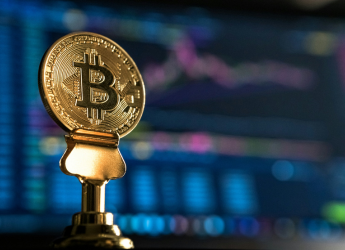- Home
- Internet
- Internet Features
- Alphabet, Amazon, Apple, Netflix See Shares Dim in Eyes of Investors
Alphabet, Amazon, Apple, Netflix See Shares Dim in Eyes of Investors

Technology companies that catapulted Wall Street to glorious heights have seen shares tumble on investor concerns that the days of stellar profits are waning.
Since their most recent peaks, Amazon lost 18.5 percent, Apple 17 percent, Netflix 23 percent, and Google-parent Alphabet 14 percent.
And the tumble came after Amazon was briefly valued, based on share price, at more than a trillion dollars, and as the e-commerce colossus heads into what should be a money-making year-end holiday shopping season.
The mood worsened early this month for Apple after it released a disappointing sales forecast for the final quarter of this year.
Investors anticipating fewer iPhones as holiday gifts knocked Apple off its pedestal as a rarity with a trillion-dollar market valuation.
Analysts contended that US tech titans driving Wall Street trends fell because conditions drove them stunningly high, and circumstances change along with company fortunes.
"Investors have really piled into the tech sector since the Brexit," said Nasdaq analyst Jack Menke.
He recalled the sector climbing an average of seven percent in the nine quarters following the British vote because, faced with uncertainties in Europe, investors were drawn to the potential of high returns on US tech companies in a low-interest environment.
Tax cut boost
US President Donald Trump's tax reform passed late last year set the stage for tech companies to reap windfalls in the first two quarters of 2018, driven by tax savings that paved the way for big spending on buying back shares or paying out dividends.
"We are facing a natural correction," Menke said of the share price drops of leading tech companies in recent weeks.
Essentially, after rocketing due to an alignment of economic planets, it is time for tech shares to return to earth.
The US Federal Reserve central banking system is firmly committed to interest rate hikes that increase borrowing costs for households and businesses, potentially leading to lower demand as people either borrow less or spend more to pay for debt.
The rise in US interest rates has also helped increase the value of the dollar, which companies translate into a "headwind" making their products more expensive abroad.
Meanwhile, US economic growth that remains strong might slow, which could contribute to a global recession. This was illustrated in October by China reporting its weakest quarterly growth in nine years.
From chatting on iPhones to shopping at Amazon and binge-watching on Netflix, these technologies are woven into daily lives of billions of people, tying the fortunes of companies to rises or falls of local economies around the world.
Between Trump's trade war and the decline in global economic prospects, investors see "higher risks of a recession compared to the last 12 months," according to Manulife AM senior portfolio manager Nate Thooft.
Ripple effect
Companies that have thrived as suppliers or partners to US tech giants are starting to feel the ripple effect.
Lumentum, which supplies Apple with technology used for a facial recognition feature in iPhones, saw its shares plunge more than 30 percent on Wall Street after revealing it is reducing shipments to one of its largest customers.
Lumentum did not name the customer. But all eyes went to Apple, shares of which took a hit on worries that iPhone demand is weakening. Apple makes most of its money from iPhone sales.
Decline of investor confidence in robust returns from tech companies makes them less willing to keeping paying premiums for shares on anticipation of stellar performance on the horizon.
"I don't think tech stocks are too expensive, but traders are less willing to pay a premium for these stocks," Thooft said.
A formula traditionally used for comparing share prices with company profit shows that valuation is more reasonable than it was before the dot-com internet bubble burst in the early 2000s.
Another risk factor facing tech companies is increased regulation ranging from the handling of people's data to free speech, fairness, and the truthfulness of content or who is behind it.
Despite recent elections that divided the US Congress between Republican and Democrats, regulatory change in the tech sector "is one issue they could agree on," Thooft said.
Catch the latest from the Consumer Electronics Show on Gadgets 360, at our CES 2026 hub.
Related Stories
- Samsung Galaxy Unpacked 2025
- ChatGPT
- Redmi Note 14 Pro+
- iPhone 16
- Apple Vision Pro
- Oneplus 12
- OnePlus Nord CE 3 Lite 5G
- iPhone 13
- Xiaomi 14 Pro
- Oppo Find N3
- Tecno Spark Go (2023)
- Realme V30
- Best Phones Under 25000
- Samsung Galaxy S24 Series
- Cryptocurrency
- iQoo 12
- Samsung Galaxy S24 Ultra
- Giottus
- Samsung Galaxy Z Flip 5
- Apple 'Scary Fast'
- Housefull 5
- GoPro Hero 12 Black Review
- Invincible Season 2
- JioGlass
- HD Ready TV
- Laptop Under 50000
- Smartwatch Under 10000
- Latest Mobile Phones
- Compare Phones
- Tecno Spark Go 3
- iQOO Z11 Turbo
- OPPO A6c
- Samsung Galaxy A07 5G
- Vivo Y500i
- OnePlus Turbo 6V
- OnePlus Turbo 6
- Itel Zeno 20 Max
- Lenovo Yoga Slim 7x (2025)
- Lenovo Yoga Slim 7a
- Realme Pad 3
- OPPO Pad Air 5
- Garmin Quatix 8 Pro
- NoiseFit Pro 6R
- Haier H5E Series
- Acerpure Nitro Z Series 100-inch QLED TV
- Asus ROG Ally
- Nintendo Switch Lite
- Haier 1.6 Ton 5 Star Inverter Split AC (HSU19G-MZAID5BN-INV)
- Haier 1.6 Ton 5 Star Inverter Split AC (HSU19G-MZAIM5BN-INV)

















